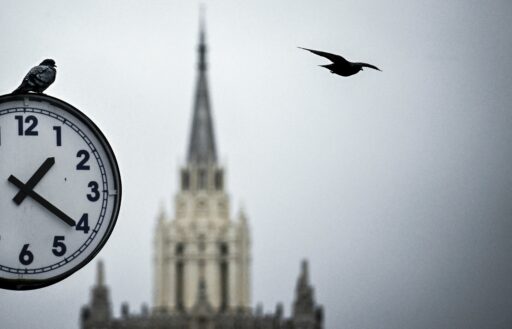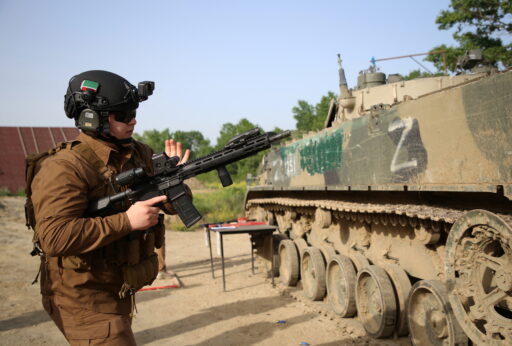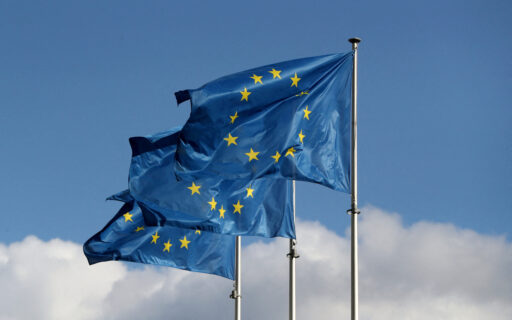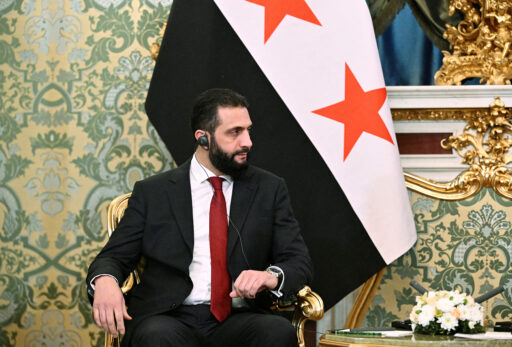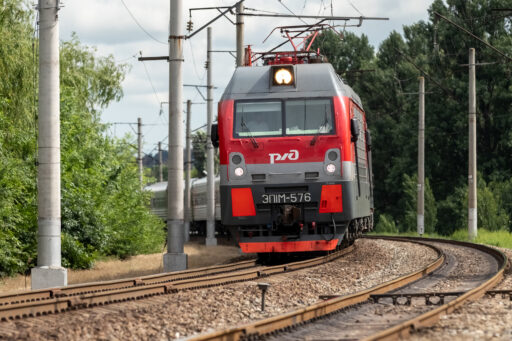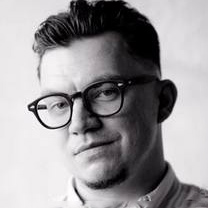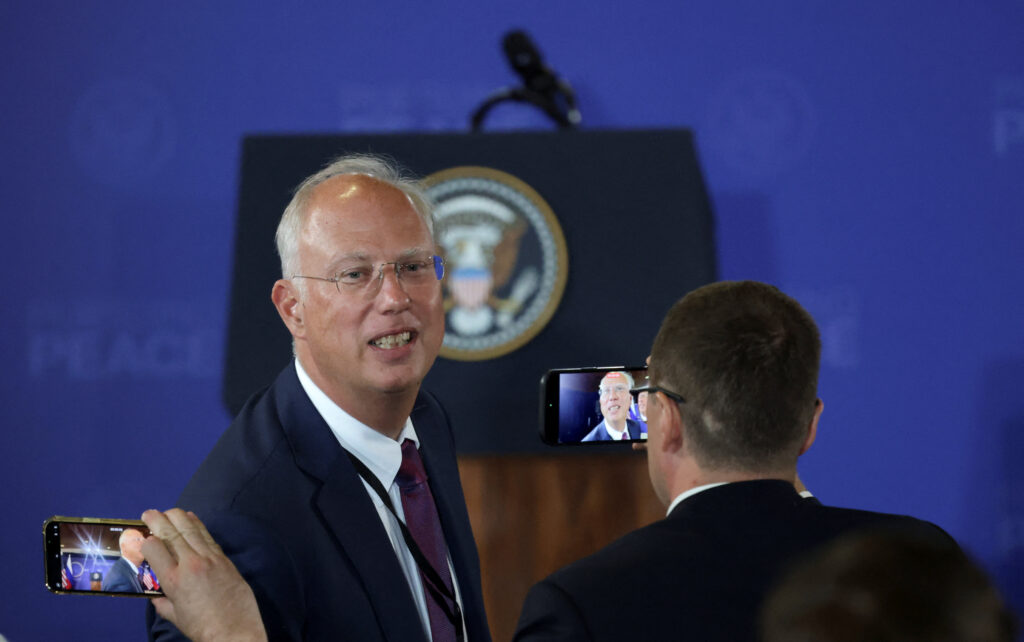“They force us to buy what we already have; it’s no coincidence, it’s a well thought out mechanism, a conspiracy of a sort. We reveal how it functions,” reads the description of Pervy Kanal’s project, titled “Conspiracy Theory.” So Russia’s leading federal TV channel criticises unfettered consumerism. To explain how capitalism intrudes into the lives of each and every one of us, the project resorts to the rich metaphors of conspiracy theorising.
The programme’s name is an homage to the popular belief that the world is governed by secret forces, however we choose to imagine them. Nevertheless, in comparison with the rest of Russian television’s offerings, replete with sensational “revelations” of secret plans and signs of evil forces, Pervy Kanal’s product actually looks quite benign.
Where Conspiracies Take Root
By the mid-2000s, “tone-down television,” as Vera Zvereva characterised it, had become a bastion of conspiracy theories. The story of how conspiracy theories became so commonplace in post-Soviet Russia is a long one, but suffice it to say that the reasons are complex; state repression was an important, but far from the crucial, factor in that process.
At the beginning of May, Russian media professionals mourned the loss of Sergey Dorenko, though without forgetting his “contribution” to the development of Russian media. It is worth remembering that the memorably brazen cynicism and gloom of Dorenko’s 1999 programmes were given the blessing of the directors and owners of Russian Public Television; his shows played a decisive role in the Kremlin’s information war against Vladimir Putin’s opponents in the race to become Boris Yeltsin’s anointed successor. The instrumentalisation of television for political ends was, to a large extent, profitable to the channel’s owners, many of whom had close ties to the authorities. Another factor was the journalists’ readiness to play by the new rules, in exchange for financial incentives and career advancement.
The journalistic field found it easier to accustom to this change given that widely accepted ethical standards practically did not exist. Whatever steps were made, the field’s professional realities won out. In fact, the “proper line” of covering certain events became increasingly restrictive; accordingly, a journalist’s professionalism was measured by their ability to adhere to those restrictions. The extent of this so-called adekvatnost (or “adequacy” or the right feel for the game) became the defining characteristic for any media worker’s career in Russia following the oligarchs’ information wars in the 1990s. By the early 2000s, facilitated by the increased state ownership over media outlets and political pressure on the press, television channels were compelled to actively agitate for the authorities. Critical (and quality) content was replaced by entertainment, which eventually also became propagandistic. Nonetheless, hoping to avoid complete censorship, Russian journalists became creative; their “feel for the game” allowed them some space to experiment. Such resourcefulness, they hoped, could at least stop viewers from getting bored and giving up television entirely.
Where do conspiracy theories come in? The characteristic conspiracy theories of the 19th and 20th centuries found refuge in entertaining, tabloid media outlets worldwide; in Russia, they found fertile ground in television after the Perestroika period. Stories about alien abductions, behind-the-scenes of international cabals, and other simple pleasures were commonplace, though hard to find in high quality publications.
Tabloid entertainment came to replace quality media content quite easily; after all, the risks of publishing it were comparatively small for both journalists’ careers and those of the owners of media outlets. It also played a key role in legitimising the place of conspiracy-laden content in the mainstream press.
An illustrative example was Gleb Pyanykh’s “Programma Maksimum,” which ran from 2005 to 2012. Pyanykh’s show copied the “infotainment” format from “Namedni” (“The Other Day”), a popular programme presented by Leonid Parfenov, but inverted its analytical content to focus on “scandals, intrigues, and investigations.” “Programma Maksimum” was not the first programme to do this, but was a particularly good example of what would become of Russian television over the 15 years to come.
Style Icons
In the hierarchy of Russian television, as in any other industry, there are leaders (the presenters of top programmes), loyal intermediaries (the presenters and producers of daily shows), and, let’s call them the “working class” of media: the ordinary workers on television channels who nonetheless have some influence on the content of the ordinary broadcast day. Analysing their work in full would require an “anthropology” of newsrooms; research which is currently not possible. Therefore, it is instead worth starting any discussion of the context and specificities of Russia’s televised conspiracy theories with those who are to a large extent their embodiment.
Before he left to become press secretary and vice-president of Rosneft, Mikhail Leontyev left his distinctive mark on the development of the Russian “paranoid style.” His “five minutes of hate,” titled “Odnako” (“However”) gives an illustrative look at evening news shows in the mid-2000s. The programme became an icon of Russian television’s politicised conspiracy theories. Leontyev’s televangelism about Russia’s place in the world economy, where its greatness came up against the shadowy power of the dollar, proved an ideological inspiration for many of Russia’s extreme conservatives today. In one segment, Leontyev states that:
“These dollars are simply the balance sheets of American banks. They have no natural existence, not even as pieces of paper bearing portraits of American presidents. They simply don’t exist. They’re methods of accounting. This fictitious currency has never really made it to our country; it exists simply to inflate American liquidity. Because those were the rules of the game… What is it really? A financial cabal, financial servitude; call it what you please. But without it, we wouldn’t have been permitted to draw breath; we’d have been paralysed by regional conflicts and acts of terrorism.”
Thanks to Leontyev’s place in an influential group of pro-government media personalities, he played an important role in mainstreaming conspiracy theories. Leontyev saw colour revolutions, allegedly stirred up by Russia’s “geopolitical opponents” not only in Ukraine and across the post-Soviet space, but also inside Russia, particularly on the eve of important elections in 2007-2008 and 2011-2012. In 2007, Leontyev warned: “what if the price of goods should suddenly change? In such circumstances, there will be an increase in social unrest, then heightened contradictions within the political establishment, then the economic and regional elites. This will be followed by interethnic tensions. Against this background, attempts will be made to destabilise the country. An external factor will play a role; ‘orange’ technology will present Russia as an evil empire. Various levers of power will be pulled to exert pressure; the fifth column, which really does exist, will be mobilised to action.”
The issue of natural resources was particularly close to Leontyev’s heart even before he started work for Rosneft’s Igor Sechin. Leontyev is convinced that the USA and other key international players are preparing to carve up the world in order to take control of Russia’s oil, gas, and water resources. In 2011 he accused the USA of stirring up revolutions in the Middle East. When oil prices began to fall, he accused the USA and Saudi Arabia of a conspiracy to lower oil prices and thereby destroy Russia. The catalyst, he claimed, was Russia’s annexation of Crimea. The USA desperately needed to “wean itself off Russian oil, if not Russia itself.”
Leontyev is one of the more successful proponents of anti-western conspiracy theories. He has been able to monetise his popularity on television and build a lucrative career as vice-president of Russia’s wealthiest oil company.
A Conspiracist by Calling
“The Saudi war with American shale oil continues to disrupt the oil market. That means that we have to save up. That’s not a big price to pay for the opportunity to live in an independent country. With its own domestic and foreign policies. As for what happens to countries who refuse [to play ball], just look at the examples of our unfortunate neighbours.”
These words could easily be attributed to Leontyev, but their author was the famous media personality, intellectual, as of recently television presenter Anatoly Wasserman. He first came to public prominence as the winner of the game show “His Own Game,” (Svoya igra) and by the 2000s, Wasserman had become a household name among educated people in Russia. With Putin’s return to the Kremlin in the early 2010s, Russia underwent a full-fledged “conservative turn,” and Wasserman reaped the benefits, becoming the presenter of political programmes with a clearly defined worldview. The USA was the global hegemon, striving to control the world by any means necessary; an international conspiracy was in motion to commit genocide against Russians, and the West was preparing yet another plan to destroy the country. Over the course of a decade, Wasserman’s conclusion was always the same: “We and those like us, the Ukrainians and other Russians, have to face reality and familiarise ourselves with the western plan. We must, so to speak, write our own book review. Just as we did seven decades ago, when we reviewed Mein Kampf. And reviewed it so convincingly that its author shot himself. A fate which I also wish upon the authors of today’s scenario.”
Wasserman’s appearance on the scene is not surprising. After all, Vladislav Surkov’s ideas of “sovereign democracy” had brought a legion of amateur anti-western writers into mainstream punditry. In the 2000s, their ranks were replenished with the support of groups of public intellectuals close to the Kremlin. These groups, most famously Gleb Pavlovsky and his team, worked on the transition of power and the legitimation of Putin as a new national leader. After Putin returned to the Kremlin in 2012, public space gradually began to fill with new faces, among them Wasserman’s. Nevertheless, his star began to rise after the Crimean crisis, by which time Russian television had completely transformed into an instrument of state propaganda. Wasserman became an authority on interpreting the latest anti-Russian intrigues, and his Ukrainian origins (Wasserman was born in Odessa — ed.) added a certain weight to his words. From his lips, warnings about “Nazi Ukrainians” and their role in western plans to enslave Russia were heeded with particular urgency.
Wasserman’s current position as a presenter on REN-TV is the natural culmination of his trajectory. The television channel, which devotes itself to unravelling mysteries and revealing international conspiracies, hosts one of the first and most conspiratorial programmes on Russian television: “Voyennaya Tayna” (“Military Secret”), presented by Igor Prokopenko. The show catapulted Prokopenko to fame, making him one of the channel’s leading personalities and largely determining its tabloid character. Military Secret also played an important role in normalising conspiratorial discourse on Russian television.
However, despite these trends, not all conspiracy theories are seen as legitimate. In fact, certain conspiracies are considered too controversial even for Russian television channels.
Red Lines and Crystal Balls
In 2013, Ulyana Skobeyda, a columnist for the tabloid Komsomolskaya Pravda, became embroiled in an unpleasant conflict after she accused the liberal politician Leonid Gozman of anti-patriotism on her video blog. Skobeyda lamented that the Nazis had not “made lampshades” out of the ancestors of “today’s liberals.” Skobeyda’s outrage was provoked by Gozman’s calls to reassess the history of the Soviet Union, which she decried as an “attempt to pull the rug out from beneath our country’s feet.” In fact, Gozman was simply appalled at the glorification of SMERSH in a television series broadcast on the eve of Victory Day, and compared officers of the Soviet counter-intelligence service to the Nazi SS. Despite the fact that Skobeyda’s ire had been directed towards liberals in general, her allusion to their Jewish heritage was a red line, and a historical turning point. The newspaper, accused of peddling antisemitic conspiracy theories, immediately removed the remark about lampshades from its websites. What remained was a personal accusation against Gozman along with some abstract references to conspiracies against Russia and historical memory of the Second World War. “Why do liberals need to do this: to reconsider history? Why do they try to pull the rug out from under the country’s feet: to reevaluate and spit on everything to do with the war: the most sacred thing for those who survived the collapse of the USSR?” Skobeyda and the editor-in-chief Vladimir Sungorkin eventually had to apologise for the article and its overtly conspiratorial character. Nevertheless, neither the newspaper nor the author of the article faced any real punishment for the incident.
A similar story occurred in 2017, during the transfer of St Petersburg’s historic St Isaac’s Cathedral into the ownership of the Russian Orthodox Church. The move triggered protests from local residents, leading Pyotr Tolstoy, a famous television presenter and deputy chairman of the State Duma, to accuse the demonstrators of being “the grandchildren and great-grandchildren of those who destroyed our churches, who jumped out of the Pale of Settlement with revolvers in 1917.” Tolstoy added that “nowadays their great and great-great grandchildren, who occupy various respected positions, in radio stations or in parliament, continue the activities of their grandfathers and great-grandfathers.”
Pyotr Tolstoy’s declaration was an illustrative example of a long-standing tradition of Russian antisemitism which regards the Bolshevik revolution as part of a Jewish plot against Russia. A torrent of criticism soon followed: Boruch Gorin, press secretary of the Federation of Jewish Communities of Russia (FJCR) , and the president of Russian Jewish Committee (RJC)Yuri Kanner called Tolstoy’s words baseless and “overtly antisemitic.” The next day Tolstoy’s boss, chairman of the State Duma Vyacheslav Volodin, stood up for him; Tolstoy announced that any accusations of antisemitism against him would only serve to deepen the nation’s divides. A couple of days later, Tolstoy apologised before Alexander Boroda, head of the Federation of Jewish Communities of Russia (FJCR) and the conflict was considered settled.
What conclusion can be drawn from these examples? Perhaps that the past 15 years, during which conspiracy theories have become ever more present in mainstream political discourse, have not been in vain. According to a survey conducted by the newspaper Vedomosti, in 2014, 45% of the Russian population believed in the existence of a world government. By 2018, that share had risen to 67%. Importantly, many respondents in the aforementioned survey named television as a source of information for the existence of this world government.
Conspiracy theories have undoubtedly come to play a key role in contemporary Russian television. The presenters of top programmes, expert guests, and even entire television channels enthusiastically cite anti-western (first and foremost anti-American) conspiracy theories to make sense of both domestic and international political events. These theories are harmless and sometimes even helpful, at least as far as the careers of media producers are concerned. Peddling conspiracy theories does not carry the risk of punishment for media owners, does not cross any political red lines, and mobilises society against a common enemy.
In fact, the only obvious red line is antisemitism. It’s a topic which Russian television producers and presenters prefer not to address, although a certain degree of everyday antisemitism persists. Until or unless broadcasting reforms are carried out to demand the bare minimum of ethical standards to journalists’ work, or until new legal measures are introduced to counter overt on air slander, Russian television will remain stuck with conspiracy theories for the foreseeable future.
Part one of “Russian media: Moscow and Beyond Calling”: how Russian media was reforged after 2000
Part three of “Russian Media: Moscow and Beyond Calling”: on the factors influencing the Russian public’s trust in sources of information
Part four of “Russian Media: Moscow and Beyond Calling”: on the place of the military’s press in Russia’s media landscape

